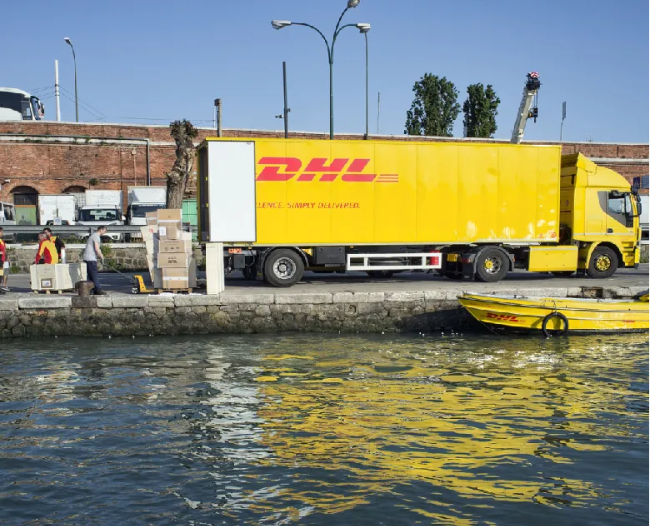Definition and Primary Purpose
Container Freight Stations, or CFS for short, are basically warehouses situated close to major ports where cargo hangs out until it gets loaded onto ships or just arrives from overseas. These facilities exist mainly to make shipping smoother for everyone involved in international trade. They offer storage space, handle paperwork, and organize containers so nothing gets lost in the chaos of port operations. Think of them as the behind-the-scenes workhorses of global shipping. Goods pass through these hubs where workers sort, inspect, and prepare shipments according to their final destinations. The result? Fewer mistakes during loading/unloading and faster turnaround times at busy ports around the world.
Storage and Consolidation Services
Container Freight Stations have storage areas that can handle all sorts of cargo, from standard containers to bulk items like grains or machinery parts. These facilities give companies somewhere to park their goods until they're needed for the next leg of the journey. Many CFS locations also do something called consolidation, where they take multiple small shipments and pack them together into bigger loads for transport. This approach really cuts down on shipping expenses since carriers charge based on volume rather than individual packages. Industry data shows consolidation often brings down shipping costs around 30 percent, though results vary depending on the route and cargo type. For businesses trying to keep tabs on expenses without disrupting their supply chains, this kind of efficiency makes a big difference in bottom line calculations.
Customs Clearance Facilitation
Container Freight Stations (CFS) are vital for speeding up customs clearance because they make sure all paperwork matches what local rules require. When these stations handle customs stuff properly, ships spend less time stuck waiting at port terminals which means goods get moved quicker from one place to another. Customs officials report that when things run smoothly through CFS locations, cargo handling times drop between 20 to 40 percent compared to normal operations. Faster deliveries matter a lot for businesses since delays cause headaches across entire supply chains. Getting containers cleared efficiently helps maintain steady product flow without unexpected bottlenecks disrupting operations downstream.
Step-by-Step Process in CFS Operations
Cargo Receiving and Documentation Check
At a Container Freight Station (CFS), the whole operation kicks off when cargo arrives and staff start going through the paperwork. They need to make sure everything matches up properly before moving anything forward. When the receiving process has solid documentation behind it, there's less chance of running into problems down the line. Mistakes in documentation can really slow things down or end up costing extra money somewhere along the way. Getting these details right from day one helps keep containers moving smoothly through the facility so shipments don't get stuck waiting for someone to sort out paperwork issues.
Inspection and Quality Control
When cargo arrives at the warehouse, teams kick off their inspection routines to check if everything looks good and meets quality requirements. These checks matter because catching problems right away stops bigger headaches later on down the road when goods are already en route. At Consolidation Freight Stations specifically, quality control work helps keep packages intact throughout their journey from sender to receiver. Warehouse staff run through detailed inspection lists daily, which means most issues get fixed before they become major complaints. This attention to detail makes a big difference in customer satisfaction rates across the shipping industry.
Temporary Storage Protocols
For container freight stations (CFS), temporary storage plays a key role in day-to-day operations, acting as a holding area for cargo before it gets processed or shipped out. During these storage periods, strict protocols keep track of security measures and control factors like temperature and humidity to maintain product quality. The secure temporary storage solutions at CFS facilities help handle massive cargo volumes without causing bottlenecks in the supply chain. Shippers appreciate knowing their goods remain safe while waiting for next steps, which makes these storage areas critical components of efficient logistics management across global trade networks.
Consolidation/Deconsolidation Workflows
Consolidation and deconsolidation processes at container freight stations really improve how cargo gets handled. When multiple small shipments get combined into bigger loads or split apart for separate deliveries, it makes things run much smoother. Delivery timelines become tighter and operations generally move faster as a result. The way logistics work gets better organized through these methods. Container freight stations make better use of available space while cutting down on unnecessary movements, which saves money across the board. Shippers, receivers, and everyone else in between benefits from these efficiencies.
Final Dispatch Procedures
After customs clearance, the last stage at a Container Freight Station involves getting all those consolidated loads out the door in an organized way. Getting these combined shipments out on time isn't easy though it takes coordination between multiple teams handling documentation, loading, and transport arrangements. When a CFS manages these final steps properly, it makes sure goods arrive where they need to go without delays. This matters a lot for businesses that depend on tight timelines for their supply chains. Proper planning here means the difference between smooth sailing and costly disruptions down the line for everyone involved in international shipping.
Key Operational Components
Cargo Handling Equipment (e.g., Electric Stacking Cranes)
At container freight stations (CFS), having the right cargo handling gear matters a lot for getting things done efficiently and keeping everyone safe. Electric stacking cranes have become pretty standard these days because they move containers around faster and with much better accuracy than older methods. This makes all the difference when trying to keep goods moving through busy facilities without bottlenecks. Some studies point to roughly a 15% boost in efficiency after implementing this kind of tech, though results vary depending on the size and layout of each station. What's clear though is that these automated systems cut down handling time while using less power overall. Many ports are adopting them not just for speed improvements but also because green initiatives require looking at every possible way to reduce carbon footprints across maritime logistics.
Security Measures and Compliance Standards
Strong security practices and proper compliance procedures play a critical role in reducing the risk of stolen or damaged goods at container freight stations. Most effective security strategies typically involve installing good surveillance coverage, limiting who gets physical access to storage areas, and conducting routine checks on inventory records. Following global security best practices does more than just protect shipments it also builds up the credibility of the facility itself in the eyes of clients and regulators alike. Companies that keep their security game strong tend to earn lasting trust from customers something that gives them real edge when competing against other logistics providers. This trust translates into better business relationships overall, with clients coming back again and again because they know their cargo will stay safe during transit and storage periods.
Digital Tracking Systems
Adding digital tracking systems to CFS operations completely changes how transparent and accurate cargo management becomes. With these systems, businesses can see where shipments are at any given moment and know exactly what stage they're in. Logistics experts point out that companies who switch to digital tracking often see around a 25 percent boost in how accurate their reports turn out to be. Better accuracy means staff can plan ahead more effectively and forecast needs accurately. Inventory gets managed smarter and schedules get tighter, which cuts down on those frustrating delays everyone hates. Real time shipment tracking does more than just streamline operations though it gives customers actual useful information so they don't have to guess when things will arrive or worry about what might go wrong next.
Strategic Role in Global Trade
Reducing Port Congestion: Case Study of Onne Port
Container Freight Stations (CFS) have become important tools for reducing port congestion problems, as seen at Onne Port where they made a real difference. When Onne Port brought in CFS facilities, things started running better across the board. Logistics got streamlined and cargo handling became much smoother between different transportation modes. Looking at numbers from the port shows something interesting too: ships waiting to enter saw their wait time cut down by around 30%. That means vessels spend less time stuck outside the harbor, making maritime operations more efficient while preventing those frustrating traffic jams we all hate. For ports looking to handle growing volumes without expanding infrastructure, implementing CFS seems like a smart move that benefits everyone involved in moving goods around the world.
Enhancing Export Efficiency (Agro Export Initiatives)
Container Freight Stations (CFS) play a key role in making exports run smoother, especially when it comes to moving agricultural products across borders. Agro export programs make good use of these CFS facilities to pack cargo more efficiently and cut down on paperwork headaches for farmers and traders. When done right, this approach helps get perishable goods out the door faster without compromising their condition during transport. Some research shows that companies using CFS properly see their export numbers jump around 20% over time. This matters because better logistics means local farmers can sell more abroad while still keeping prices competitive. What's really important though is how fresh fruits and vegetables stay during transit thanks to improved handling at these stations, which makes them more appealing to overseas buyers who demand top quality produce.
Automation Advancements: Hamburg Terminal Example
Looking at the Hamburg Terminal gives us a good look at what happens when CFS operations start adopting automation technologies. The numbers tell quite a story there too – cargo turnover went up around 40% after implementing these changes. That kind of jump shows just how much tech can transform how freight gets handled day to day. What's happening on the ground is pretty straightforward actually. Fewer mistakes from workers and better use of available resources means safer operations overall while getting things done faster. For anyone running a container facility, watching this play out in Hamburg offers real insights into what's possible when modern tech meets traditional logistics workflows.
FAQs about Container Freight Stations
What is a Container Freight Station (CFS)?
A Container Freight Station (CFS) is a facility near ports used as an intermediary space for handling cargo before loading onto ships or after unloading.
What services do CFS facilities provide?
They offer storage solutions, consolidation and deconsolidation services, customs clearance facilitation, and cargo handling equipment services, among others.
How does CFS contribute to customs clearance?
CFS facilities expedite customs clearance by ensuring accurate documentation and compliance with local regulations, reducing dwell and turnaround times significantly.
What are the key components of CFS operations?
Key components include cargo handling equipment, security measures, and digital tracking systems, all enhancing operational efficiency and safety.
How do CFS facilities affect global trade?
By reducing port congestion, enhancing export efficiency, and advancing automation, CFS facilities play a strategic role in optimizing global trade operations.

 EN
EN







